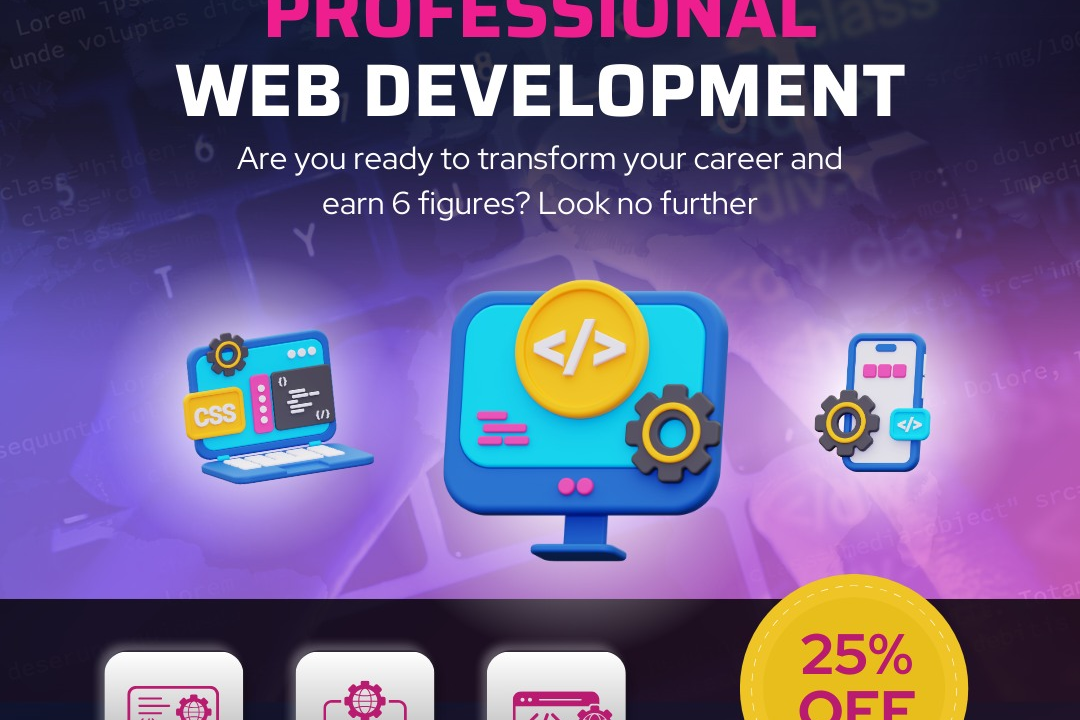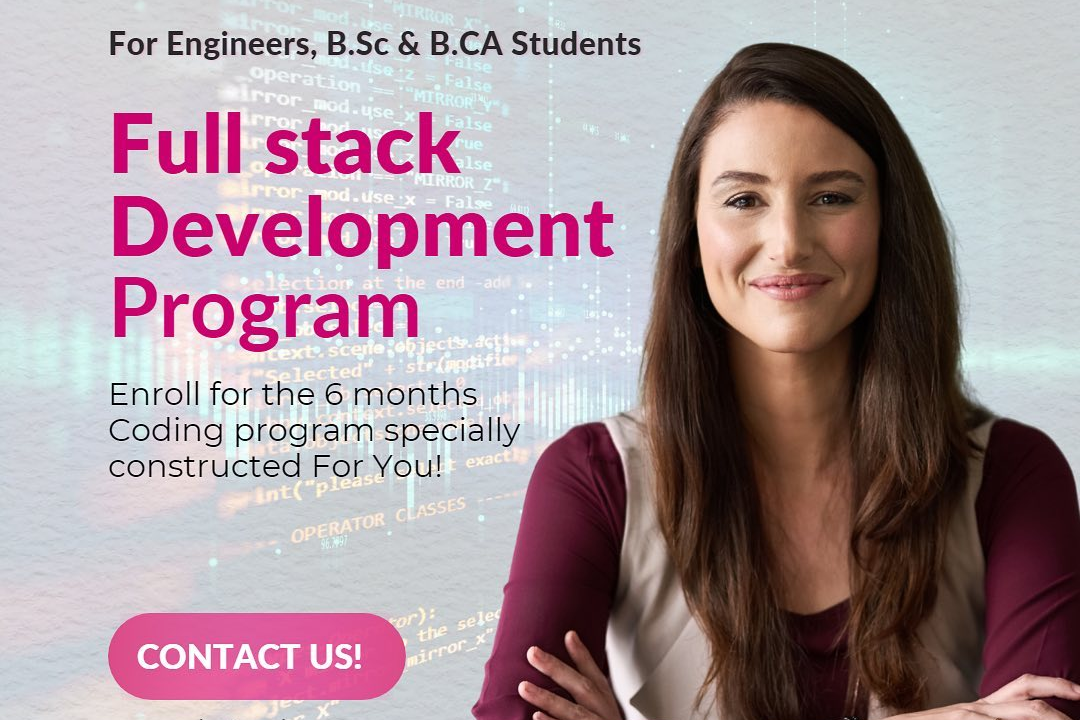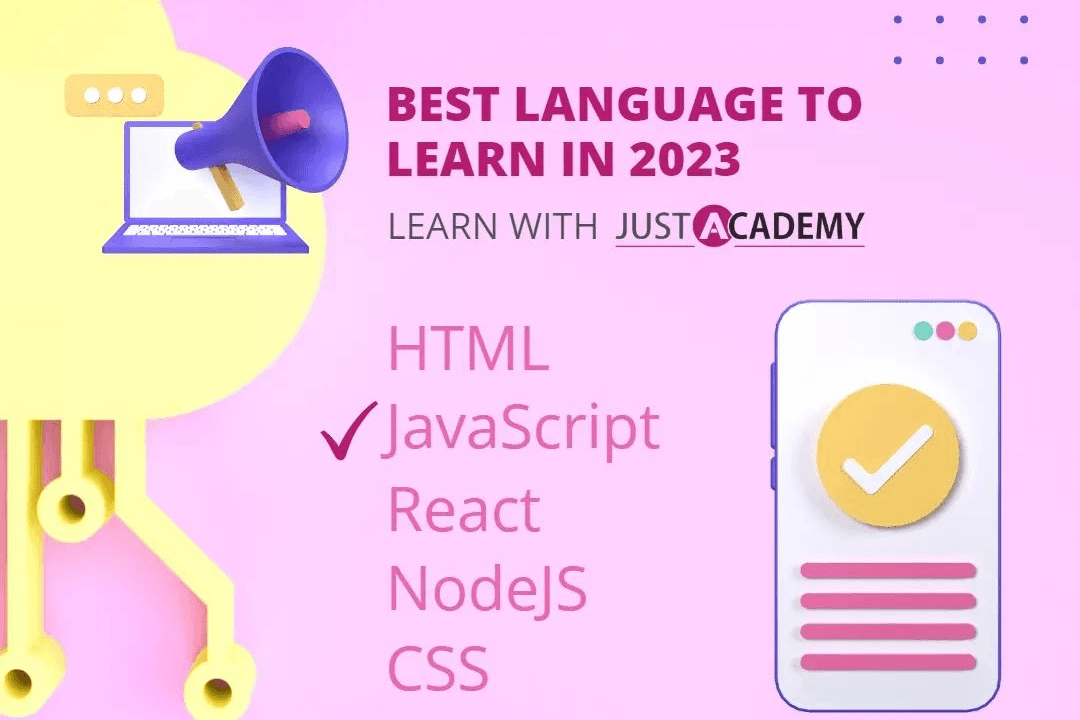Laravel Interview Questions 2017
Essential Laravel Interview Questions for 2017 Job Seekers
Laravel Interview Questions 2017
Laravel interview questions from 2017 remain relevant as they provide insights into the foundational concepts and evolving best practices of this popular PHP framework. Understanding these questions helps developers brush up on essential topics such as routing, middleware, Eloquent ORM, and security features that were significant during that period. Moreover, revisiting these questions can reveal the evolution of development trends and common challenges faced by developers, ultimately enhancing problem-solving skills and technical knowledge. This makes them invaluable for both aspiring developers looking to secure a position in web development and seasoned professionals aiming to refresh their expertise.
To Download Our Brochure: https://www.justacademy.co/download-brochure-for-free
Message us for more information: +91 9987184296
Here are 15 Laravel interview questions from 2017 along with their answers:
1 - What is Laravel?
Laravel is a robust PHP framework that follows the MVC (Model View Controller) architectural pattern, designed to make developing web applications easier and more efficient through elegant syntax and a range of built in tools.
2) What are service providers in Laravel?
Service providers are the central place for configuring your application. They are responsible for binding classes into the service container and can bootstrap any needed components or services when the application is initialized.
3) Explain Eloquent ORM.
Eloquent is Laravel’s built in Object Relational Mapping (ORM) system, which provides an easy and active record implementation for working with database records, allowing developers to interact with the database using models and relationships rather than SQL queries.
4) How does routing work in Laravel?
Routing in Laravel is defined in the application's routes files, located in the `routes` directory, where developers can define routes that respond to various HTTP requests and map them to specific controllers or actions.
5) What is Middleware in Laravel?
Middleware acts as a filter for HTTP requests entering your application, allowing you to perform actions like authentication, logging, and CORS, providing a convenient mechanism for manipulation of requests before they reach the application logic.
6) What is a Blade Template?
Blade is Laravel's templating engine that allows developers to define dynamic content and layout structures using a clean syntax, including features like template inheritance and sections to enhance maintainability and organization of views.
7) Explain the purpose of migrations.
Migrations are version control for your database schema, designed to make it easy to modify and share the database schema with your team, allowing developers to easily create, modify, and rollback database tables and columns.
8) What are Laravel facades?
Facades provide a static interface to classes that are available in the application's service container, allowing developers to call methods without needing to instantiate the underlying classes, thus improving readability and reducing boilerplate code.
9) How can you implement validation in Laravel?
Validation in Laravel can be easily achieved using the `validate` method in controllers or by defining validation rules in Form Request classes, allowing for a clean separation of validation logic from the controller.
10) What is the purpose of the `.env` file?
The `.env` file stores application configuration variables such as database credentials and environment settings securely, allowing for easy management of environment specific settings without hardcoding them into your project.
11 - What is a Laravel Seeder?
Seeders are classes used to populate a database with initial data for testing or development purposes, allowing developers to quickly fill their database with sample records using the `db:seed` command.
12) What are queues in Laravel?
Queues in Laravel provide a way to defer the execution of time consuming tasks, such as sending emails or processing uploads, allowing for better performance and responsiveness by processing these tasks in the background.
13) How do you handle errors and exceptions in Laravel?
Error and exceptions in Laravel can be managed using the built in exception handler located in the `app/Exceptions/Handler.php` file, allowing developers to customize how exceptions are reported and rendered.
14) What are events and listeners in Laravel?
Events and listeners allow developers to implement an observer pattern, where events are emitted and related listeners respond to these events, enabling a decoupled architecture and promoting cleaner code organization.
15) Explain Laravel's dependency injection.
Dependency injection in Laravel is a design pattern that allows classes to receive their dependencies from an external source rather than creating them internally, fostering more maintainable and testable code by leveraging the service container.
Here are additional Laravel interview questions from 2017 with their corresponding answers to further enhance your preparation:
16) What is Laravel Passport?
Laravel Passport is an OAuth2 server implementation for API authentication within a Laravel application. It provides a full OAuth2 server implementation for your application, allowing you to issue access tokens to users for secure API access.
17) How do you define relationships in Eloquent?
Eloquent allows you to define relationships between models using methods like `hasOne`, `hasMany`, `belongsTo`, and `belongsToMany`. These relationships enable easy data retrieval, allowing developers to work with related data seamlessly.
18) What is the use of Artisan in Laravel?
Artisan is Laravel's command line interface that provides various helpful commands for performing common tasks, such as building controllers, running migrations, or generating test cases. It streamlines development processes and improves efficiency.
19) Explain the concept of route caching in Laravel.
Route caching is a feature that compiles your defined routes into a single file, speeding up the route registration process. It’s highly beneficial for applications with a large number of routes and can be enabled using the `route:cache` Artisan command.
20) What are the different types of Laravel testing?
Laravel supports several types of testing, including unit tests, feature tests, and browser tests. Unit tests verify individual components or functions, while feature tests simulate user interaction to ensure that a group of components work together correctly.
21 - What is the purpose of the `config` folder?
The `config` folder contains configuration files for different parts of the Laravel application, allowing developers to define and customize application settings such as database connections, mail settings, and other service configurations in a centralized manner.
22) How does caching work in Laravel?
Caching in Laravel is facilitated through a unified API, supporting various cache backends such as Redis, Memcached, and the file system. Developers can cache data and retrieve it efficiently, improving application performance by reducing repetitive database queries.
23) What is the purpose of Laravel Collections?
Collections in Laravel are an enhanced array implementation, providing a fluent, convenient wrapper for working with arrays, offering various methods for transforming, filtering, and interacting with sets of data in a more readable and expressive way.
24) Explain the concept of localization and internationalization in Laravel.
Laravel provides built in support for localization, allowing developers to manage translations and display content in different languages using language files, making it easier to create applications that cater to a global audience.
25) What is the difference between `get` and `post` methods in Laravel routing?
The `get` method is used to define routes that respond to HTTP GET requests, while the `post` method is used for routes that respond to HTTP POST requests. The distinction allows developers to separate the handling of data retrieval and data submission.
26) How can you create custom validation rules in Laravel?
Custom validation rules in Laravel can be created by implementing the `Rule` interface, or by using the `make` method to create a custom rule object. This enables developers to define specific validation logic tailored to their application’s requirements.
27) What is Laravel Mix?
Laravel Mix is a powerful asset compilation tool that simplifies the process of compiling CSS and JavaScript assets in a Laravel application, leveraging Webpack under the hood. It provides an expressive API for defining build steps, such as preprocessing and versioning assets.
28) Explain the use of `auth` middleware.
The `auth` middleware ensures that users are authenticated before accessing specific routes or controllers. It checks if the user is logged in and redirects them if not, providing a straightforward way to protect routes that require user authentication.
29) What is the `config:cache` command?
The `config:cache` command is an Artisan command that combines all configuration files into a single cache file for better performance. It prevents the need for loading multiple configuration files during runtime and improves response times in production environments.
30) How can you implement pagination in Laravel?
Pagination in Laravel can be easily implemented using the `paginate` method on Eloquent queries, which is capable of splitting your data into smaller, manageable chunks that can be easily navigated through links generated by the framework.
These additional points provide a more comprehensive overview of key topics relating to Laravel and its functionalities, which can greatly assist candidates in their preparation for interviews.
Course Overview
The “Laravel Interview Questions 2017” course offers an in-depth exploration of key concepts and practical applications that are essential for mastering Laravel, focusing on a curated collection of interview questions and answers from 2017. Participants will engage with topics such as Eloquent relationships, Artisan command line tools, caching mechanisms, and testing methodologies, all designed to enhance their understanding and proficiency in Laravel development. This course not only prepares candidates for technical interviews by reinforcing their knowledge of Laravel's features but also equips them with real-time project experiences that demonstrate their capabilities in a professional setting. Ideal for aspiring developers and professionals looking to advance their careers, this course will build confidence and expertise in Laravel, making participants stand out in the job market.
Course Description
The “Laravel Interview Questions 2017” course is designed to equip learners with the essential knowledge and skills needed to excel in Laravel development interviews. By exploring a comprehensive range of interview questions and answers from the year 2017, this course focuses on critical topics such as routing, middleware, Eloquent ORM, and service providers. Participants will benefit from real-time project scenarios that provide practical experience, enhancing their understanding of Laravel's functionalities. Whether you are a beginner looking to break into the field or an experienced developer seeking to refresh your skills, this course offers a valuable resource for mastering Laravel and confidently approaching job interviews in the competitive tech landscape.
Key Features
1 - Comprehensive Tool Coverage: Provides hands-on training with a range of industry-standard testing tools, including Selenium, JIRA, LoadRunner, and TestRail.
2) Practical Exercises: Features real-world exercises and case studies to apply tools in various testing scenarios.
3) Interactive Learning: Includes interactive sessions with industry experts for personalized feedback and guidance.
4) Detailed Tutorials: Offers extensive tutorials and documentation on tool functionalities and best practices.
5) Advanced Techniques: Covers both fundamental and advanced techniques for using testing tools effectively.
6) Data Visualization: Integrates tools for visualizing test metrics and results, enhancing data interpretation and decision-making.
7) Tool Integration: Teaches how to integrate testing tools into the software development lifecycle for streamlined workflows.
8) Project-Based Learning: Focuses on project-based learning to build practical skills and create a portfolio of completed tasks.
9) Career Support: Provides resources and support for applying learned skills to real-world job scenarios, including resume building and interview preparation.
10) Up-to-Date Content: Ensures that course materials reflect the latest industry standards and tool updates.
Benefits of taking our course
Functional Tools
1 - Laravel Framework
The course centers around the Laravel framework, a powerful and popular PHP framework that simplifies web application development. Laravel is known for its elegant syntax and toolkit that enables developers to build robust, high quality applications with ease. Participants will learn how to leverage its built in features such as routing, middleware, ORM (Eloquent), and templating engines (Blade) which streamline the development process and enhance productivity. Understanding the framework's architecture and features is crucial for any aspiring developer looking to excel in the Laravel ecosystem.
2) Composer
Composer is a dependency manager for PHP, which plays a vital role in Laravel development. In this course, students will gain hands on experience with Composer, learning how to manage packages and libraries efficiently. They will discover how to integrate third party tools into their Laravel projects seamlessly, ensuring that their applications are utilizing the latest libraries and updates. Understanding Composer is essential for any developer as it simplifies managing project dependencies and maintaining code quality.
3) Postman
Postman serves as an invaluable tool for developing APIs, and it will be extensively used in the course to test endpoints created within Laravel applications. Students will learn how to set up requests, validate responses, and ensure that their applications are functioning as intended through practical exercises. Postman's user friendly interface helps in debugging and fine tuning APIs, making it an essential tool for developers looking to deliver high quality web services.
4) MySQL
MySQL, a widely used relational database management system, will be a fundamental tool in this course. Participants will understand how to create, manage, and interact with databases through Laravel's built in Eloquent ORM. They will learn how to perform CRUD (Create, Read, Update, Delete) operations and implement relationships between tables, which are crucial for maintaining data integrity and optimizing application performance. Familiarity with MySQL is essential for backend development and database management.
5) PHPUnit
Testing is a key aspect of software development, and PHPUnit, a popular testing framework for PHP, will be introduced to participants. They will learn how to write unit tests and feature tests within their Laravel applications, ensuring that their code is reliable and maintains high quality. The course will cover test driven development (TDD) practices, highlighting the importance of testing in the development workflow. Mastering PHPUnit enables developers to identify bugs early and improves the overall confidence in their codebase.
6) Git
Version control is crucial for software development, and Git is the most widely adopted system for managing source code. In this course, students will learn the fundamentals of Git, including how to create repositories, manage branches, and collaborate on projects with other developers. Understanding Git allows participants to effectively track changes in their codebase, revert to previous versions, and work collaboratively, which is essential in any professional development environment.
7) Laravel Debugbar
The Laravel Debugbar is a package that integrates with Laravel to provide extensive debugging information. This tool will be introduced in the course to help students troubleshoot their applications. They will learn how to monitor performance, examine SQL queries, and analyze request/response data, giving them insights into the inner workings of their applications. Mastering this tool enhances their ability to optimize applications and diagnose issues swiftly.
By mastering these tools, participants in the Laravel Interview Questions 2017 course will be well equipped with the essential skills and knowledge needed for successful careers as Laravel developers. Each tool plays a significant role in bridging theory with practical application, ensuring that students are not only prepared for job interviews but also ready to tackle real world projects.
Certainly! Here are additional points to expand on the benefits and features of each topic covered in the Laravel course:
1 - Laravel Framework
MVC Architecture: Learn the Model View Controller (MVC) architecture, which separates application logic from presentation, making code more organized and maintainable.
Routing: Understand how to define routes and manage web and API requests efficiently, enabling the creation of RESTful applications.
Security: Explore Laravel's built in security features such as CSRF protection, user authentication, and authorization mechanisms to safeguard applications from vulnerabilities.
Middleware: Discover how to implement middleware for filtering HTTP requests entering your application, enhancing both security and performance.
2) Composer
Package Installation: Learn how to install and manage packages from Packagist, allowing for quick integration of functionalities into Laravel projects.
Autoloading: Understand Composer's autoloading capabilities, which simplify the inclusion of class files, boosting development speed.
Version Control: Manage package versions and dependencies effectively, ensuring compatibility and stability of applications with each update.
3) Postman
API Design: Gain insights into API design principles, allowing students to create user friendly and efficient APIs.
Environment Variables: Use environment variables in Postman to manage different configurations for development, testing, and production setups.
Automated Testing: Learn to write and automate tests for APIs, ensuring that they meet predefined standards and function correctly throughout development cycles.
4) MySQL
Advanced Queries: Master advanced SQL queries, including joins, subqueries, and aggregate functions to retrieve and process data efficiently.
Indexing: Understand indexing to optimize query performance, crucial for large scale applications.
Database Design: Learn best practices in database design, including normalization principles, to maintain a logical and efficient data structure.
5) PHPUnit
Mocking and Stubbing: Explore advanced testing techniques like mocking and stubbing to simulate interactions with objects during testing.
Test Coverage: Analyze test coverage to identify untested parts of the codebase, ensuring comprehensive quality assurance.
Continuous Integration: Implement continuous integration practices that incorporate automated testing into the development workflow, enhancing efficiency.
6) Git
Branching Strategies: Understand various branching strategies (like Git Flow) and when to utilize them for effective collaboration in teams.
Pull Requests: Learn how to create and manage pull requests for code review and collaboration, ensuring code quality before merging.
Collaboration: Utilize platforms like GitHub or GitLab for collaborating with teams, tracking issues, and managing project documentation.
7) Laravel Debugbar
Profiling Queries: Learn to profile database queries, identifying slow queries that can be optimized for better performance.
Request Information: Analyze detailed request information, including headers, session data, and views rendered, to troubleshoot issues faster.
Integration with Other Packages: Understand how to integrate Debugbar with other Laravel packages to gain comprehensive insights into your application’s performance.
Additional Topics
Laravel Nova: Introduction to Laravel Nova for building administration panels effortlessly, making it easier to manage the application’s data.
RESTful APIs: Dive deeper into creating RESTful APIs using Laravel, including best practices for building, documenting, and versioning APIs.
Deployment Strategies: Learn about deployment strategies and tools, such as Forge and Envoyer, that streamline the process of deploying applications to production.
Laravel Ecosystem: Explore the wider Laravel ecosystem, including packages like Horizon for queue management and Passport for API authentication.
By covering these additional points, the Laravel course at JustAcademy will comprehensively prepare participants not only for job interviews but also for real world challenges in software development, ensuring they possess well rounded expertise essential for success in the industry.
Browse our course links : https://www.justacademy.co/all-courses
To Join our FREE DEMO Session:
This information is sourced from JustAcademy
Contact Info:
Roshan Chaturvedi
Message us on Whatsapp: +91 9987184296
Email id: info@justacademy.co
GOIBIBO iOS DEVELOPER INTERVIEW QUESTIONS












